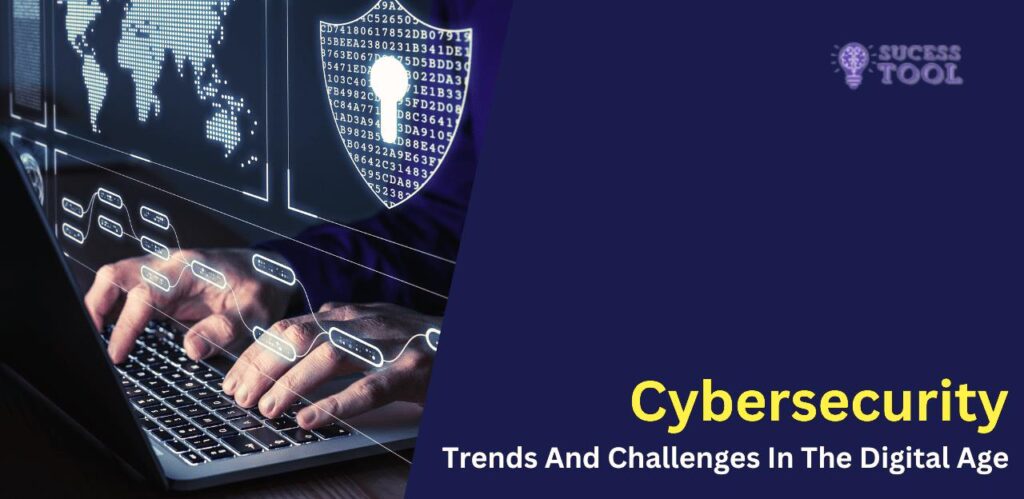The Future of Ethical Hacking: Cybersecurity Trends and Challenges

As technology advances, so do the difficulties facing digital security. Cyberattacks have become more sophisticated and increasingly target individuals, businesses, and entire nations. In this escalating cyber warfare, ethical hacking has emerged as a crucial line of defense. White-hat hackers, also referred to as ethical hackers, use their knowledge to identify weaknesses in systems and fortify them against malevolent assaults. The future of ethical hacking will be shaped by emerging trends and difficulties, though, making it an exciting yet challenging career to pursue. This essay explores the future of ethical hacking, focusing on the patterns impacting its growth and the challenges it faces to succeed. It is offered by SucessTool: Learn Smarter, Achieve Faster.
Artificial intelligence(AI) is one of the most notable trends influencing the future of ethical hacking. The way cybersecurity experts identify and address threats is changing as a result of these technologies. Ethical hackers are utilizing AI-powered tools to automate processes such as threat identification, penetration testing, and vulnerability scanning. Malicious actors are using AI to create increasingly sophisticated and adaptable attack techniques, so this trend has this implication.
The growth of the Internet of Things(IoT) and the security issues it raises are also significant trends. The proliferation of IoT devices, which connect anything from industrial systems to home appliances, opens up new attack vectors for hackers. The responsibility of protecting these devices and ensuring that their integration into networks does not jeopardize overall security is falling more and more on ethical hackers. This is a particularly daunting task due to the diversity and lack of standards across IoT devices. Furthermore, many IoT devices have low processing power, which makes it difficult to implement robust security measures. Innovative solutions and close collaboration between manufacturers, legislators, and ethical hackers will be required to address these issues.
The future of ethical hacking is also being shaped by the increasing adoption of cloud computing. Ethical hackers must adjust their strategies to handle specific cloud security challenges as more businesses migrate their operations to the cloud. Cloud environments often include multi-tenant systems, shared responsibilities, and complex architectures, all of which necessitate specialized knowledge for security. Identifying configuration errors, securing application programming interfaces(APIs), and preventing data breaches in cloud platforms are becoming increasingly critical for ethical hackers. This evolution underscores the importance of continuous learning and adaptation as the cybersecurity landscape changes.
The ethical hacking profession is influenced by legal and regulatory frameworks alongside technological advancements. Stricter cybersecurity laws are enacted by governments and organizations worldwide to protect personal information and critical infrastructure. To ensure their actions comply with relevant laws and regulations, ethical hackers must navigate these evolving legal landscapes. For instance, stringent data protection standards imposed by the General Data Protection Regulation and related laws affect how ethical hacking assessments are conducted. These regulations enhance accountability, but they also present new challenges that ethical hackers must overcome to avoid legal repercussions.
Moreover, there is a talent gap in ethical hacking, which may hinder the field’s ability to tackle upcoming challenges. Organizations struggle to find qualified ethical hackers, as the demand for skilled cybersecurity professionals far outpaces the supply. This talent shortage highlights the importance of education and training programs in attracting and preparing the next generation of ethical hackers. Filling this gap and ensuring a consistent flow of qualified talent can be achieved through programs that emphasize hands-on experience, certifications, and exposure to real-world scenarios.
The growing complexity of cyberattacks, including supply chain vulnerabilities and ransomware, is another issue that ethical hackers must address. With cybercriminals concentrating on high-value targets such as government organizations, healthcare systems, and vital infrastructure, ransomware assaults have grown more destructive and focused. Identifying the weaknesses that ransomware operators exploit and developing ways to lessen the risks are critical tasks for ethical hackers. Similar difficulties arise from supply chain attacks that jeopardize third-party or trusted vendors. In addition to assessing the security of particular companies, ethical hackers also need to consider the security of their suppliers and collaborators.
For ethical hackers, the advent of quantum computing poses both a huge opportunity and a challenge. Although it introduces new threats, quantum computers have the potential to completely transform cybersecurity by breaking conventional encryption techniques. To protect systems from quantum-based attacks, ethical hackers must become proficient in post-quantum cryptography. This change would significantly broaden the skill set needed by ethical hacking experts by necessitating a thorough understanding of quantum physics and its implications for encryption techniques.
Ethical hackers must adopt a proactive and collaborative stance to overcome these obstacles and seize new opportunities. Since the industry is developing at an unprecedented rate, it is critical to continuously learn. To stay up to date on the latest trends and technologies, ethical hackers should participate in cybersecurity networks, attend industry conferences, and obtain advanced certifications. Collaborating with law enforcement, foreign organizations, and other cybersecurity experts is essential to formulating strategies that effectively counter global cyber threats.
Additionally, a greater focus on automation and scalability will enhance ethical hacking. Manual approaches are no longer sufficient to handle the growing volume and complexity of cyber threats. Ethical hackers can concentrate on high-priority tasks that require human expertise by using automated tools and frameworks to conduct thorough assessments more rapidly. Furthermore, by incorporating ethical hacking into the Software Development Lifecycle(SDLC) through methodologies such as DevSecOps, organizations can diminish the need for reactive measures by embedding security into their systems from the outset.
Although ethical hacking faces a challenging future, there is also substantial promise for individuals who are prepared to embrace its complexity. Ethical hackers will become increasingly important in protecting the digital environment as technology evolves. By remaining flexible, fostering teamwork, and prioritizing innovation, ethical hackers may meet the challenge and satisfy the expectations of a constantly evolving cybersecurity ecosystem. Despite the challenges that lie ahead, ethical hackers will continue to play a vital role in safeguarding the data and systems that support contemporary society.

